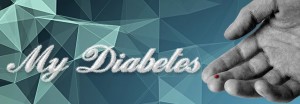My Diabetes Project – Alcohol
Diabetes information and services in Europe
 http://mydiabetes.eurohealth.ie
http://mydiabetes.eurohealth.ie
| Diabetes information and services in Europe |
Your liver normally protects against low blood sugar by releasing stored sugar as needed. But when drinking, the liver is too busy processing alcohol to do this so putting you at risk of low blood sugar after you drink and up to 24 hours after.
- Get your doctor’s OK to drink alcohol — if you have diabetes complications such as nerve damage or eye disease, alcohol can make these problems worse. But if your diabetes is under control, doctors will usually allow for the occasional alcoholic drink. For women and men over 65, this means no more than one drink a day, while men under 65 can have up to two. A drink is defined as a 12-oz beer, 5 oz of wine, or 1.5 oz of distilled spirits (hard liquor).
- Don’t drink alcohol an empty stomach — if you take insulin or other diabetes medications, make sure you eat before you drink or drink while eating to prevent your blood sugar from getting too low.
- Choose your drinks carefully — light beer and dry wines have fewer calories and carbohydrates than other alcoholic drinks, so they may be preferable for diabetics. If you prefer mixed drinks, then use sugar-free mixers like diet soda, diet tonic, club soda, or seltzers which won’t raise your blood sugar.
- Count your calories — don’t forget to add the calories from any alcohol you drink to your daily calorie total, and ask your doctor or dietician how the calories and carbohydrates from alcohol affect your diet plan.
- Check your blood sugar level before bed as alcohol may affect your blood sugar levels for hours after your last drink. Make sure your blood sugar is between 100-140 mg/dL (or 5.6 and 7.8 mmol/L) before going to sleep.
- If not, eat a snack before bed to prevent your blood sugar level from getting too low.